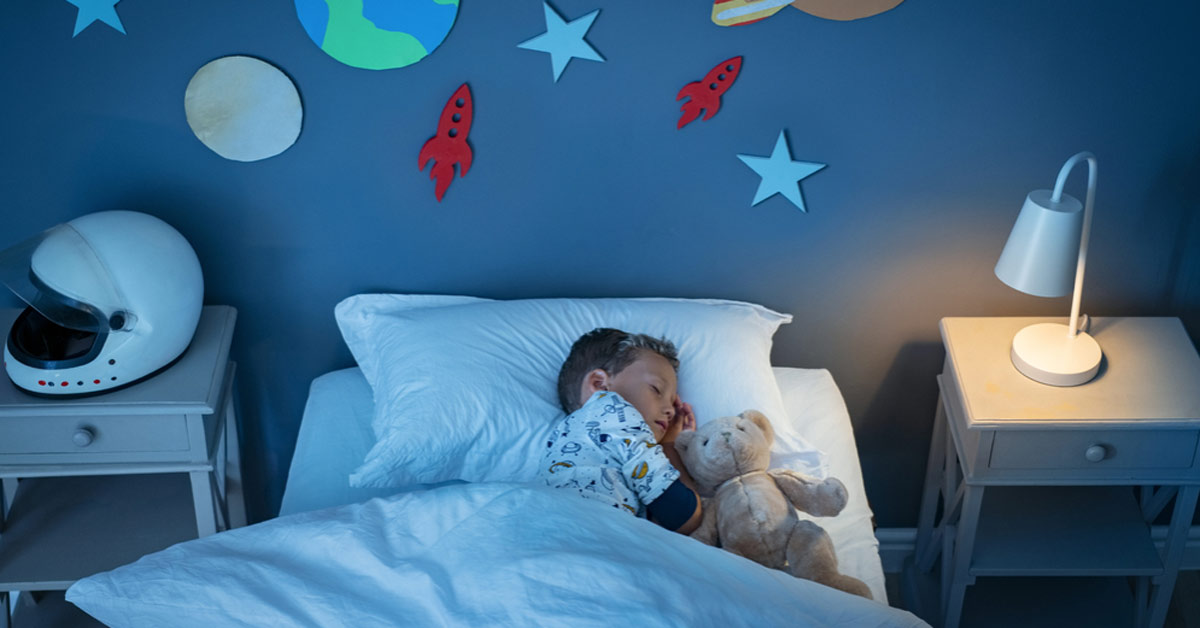I problemi del sonno dei bambini possono segnalare un futuro disturbo mentale?

Uno studio dell'Università di Birmingham ha preso in esame le relazioni tra i problemi del sonno nei primi anni d'età e il collegamento a disturbi mentali in fase adolescenziale.
Nello specifico, il team della School of Psychology dell'Università di Birmingham ha analizzato ed elaborato i dati del questionario dei "Children of the 90s", uno studio longitudinale negli ultimi tre decenni che ha reclutato 14.000 donne in stato interessante nel Regno Unito a cavallo tra il 1991 e il 1992. Questo progetto è anche conosciuto come Avon Longitudinal Study of Parents and Children (ALSPAC) ed è stato creato dall'Università di Bristol: nello anni ha anche assunto la funzione di monitoraggio della salute e dello sviluppo dei genitori, dei loro figli e ora dei loro nipoti.
Il team ha quindi avuto modo di individuare e associare dei percorsi di analisi dei dati per valutare le relazioni tra disturbi nel sonno nei bambini e il manifestarsi di specifici disturbi da adolescenti.
Sono quindi emersi due aspetti principali:
● I bambini, alle prese con frequenti risvegli nelle ore notturne e routine di sonno irregolari, hanno evidenziato esperienze psicotiche da adolescenti.
● I bambini che dormivano per periodi più brevi durante la notte e andavano a letto più tardi, avevano maggiori probabilità di essere associati al disturbo borderline di personalità (BPD) durante la loro adolescenza.
La ricercatrice a capo dell'equipe, la dott.ssa Isabel Morales-Muñoz, ha motivato questo quadro approfondendo i temi principali: "Sappiamo da ricerche precedenti che gli incubi persistenti nei bambini sono stati associati sia alla psicosi che al disturbo borderline di personalità. Gli incubi lei non raccontano l'intera storia: siamo giunti alla conclusione che, in effetti, una serie di problemi comportamentali del sonno nell'infanzia possono indicare questi problemi nell'adolescenza".
I ricercatori hanno esaminato i dati del questionario di oltre 7.000 partecipanti riferiti ai sintomi psicotici nell'adolescenza e più di 6.000 che riferivano sui sintomi della BPD nell'adolescenza.
Il comportamento del sonno tra partecipanti è stato segnalato dai genitori quando i bambini avevano 6, 18 e 30 mesi e valutato nuovamente a 3 anni e mezzo, 4 anni e 8 mesi e 5 anni e 8 mesi.
I risultati, pubblicati sulla JAMA Psychiatry, mostrano particolari associazioni tra bambini di 18 mesi che tendevano a svegliarsi più frequentemente di notte (e che avevano routine di sonno meno regolari dai 6 mesi), con esperienze psicotiche nell'adolescenza. Ciò supporta le prove esistenti che l'insonnia contribuisce alla psicosi, ma suggerisce che queste difficoltà possono essere già presenti anni prima che si verifichino esperienze psicotiche.
Il team ha anche associato i disturbi nel sonno e la scarsa regolarità a problematiche sulla personalità:
prendendo in esame i bambini di tre anni e mezzo d'età che dormivano di meno durante la notte e andavano a letto più tardi, sono state trovate correlazioni con i sintomi della BPD. Questi risultati suggeriscono un percorso specifico dai bambini fino agli adolescenti con BPD, che è separato dal percorso collegato alla psicosi.
Infine, i ricercatori hanno studiato se i collegamenti tra il sonno infantile e i disturbi mentali negli adolescenti potrebbero essere mediati dai sintomi della depressione nei bambini intorno ai 10 anni d'età. Hanno dimostrato che la depressione mediava i collegamenti tra i problemi di sonno infantile e l'insorgenza di psicosi negli adolescenti, ma questa mediazione non è stata osservata nella BPD, suggerendo l'esistenza di un'associazione diretta tra problemi di sonno e sintomi di BPD.
Il professor Steven Marwaha, autore senior dello studio, ha aggiunto: "Sappiamo che l'adolescenza è un periodo di sviluppo chiave per studiare l'insorgenza di molti disturbi mentali, tra cui psicosi o BPD. Ciò è dovuto a particolari cambiamenti cerebrali e ormonali che si verificano in questa fase. È fondamentale identificare i fattori di rischio che potrebbero aumentare la vulnerabilità degli adolescenti allo sviluppo di questi disturbi, identificare quelli ad alto rischio e fornire interventi efficaci. Questo studio ci aiuta a capire questo processo e quali potrebbero essere gli obiettivi".
"Il sonno - aggiunge Marwaha - può essere uno dei fattori di fondo più importanti ed è uno che possiamo influenzare con interventi efficaci e precoci, quindi è importante che si comprendano al meglio questi collegamenti".
Psicologo con sede a Roma
Iscriviti alla Newsletter
Contatti

Studio Koinè - Via Tigrè 77 - 00199 Roma, Italy
